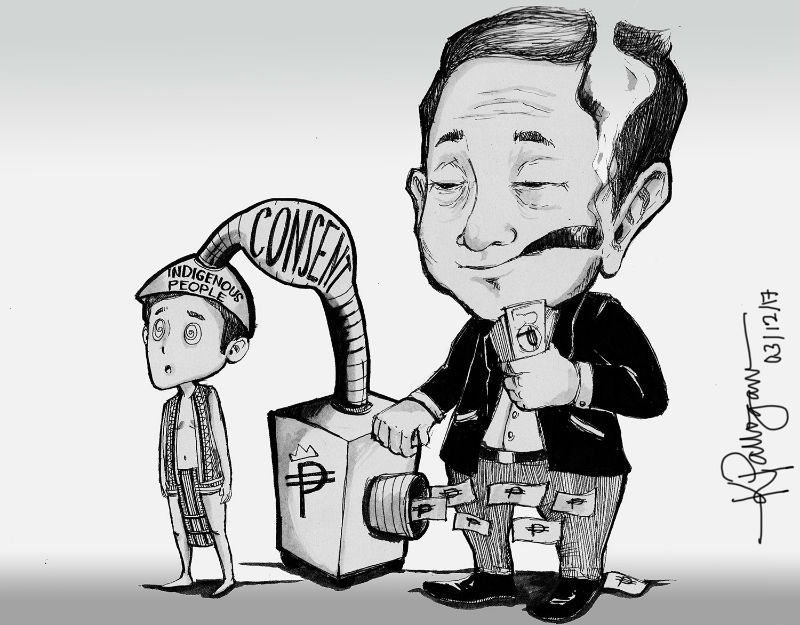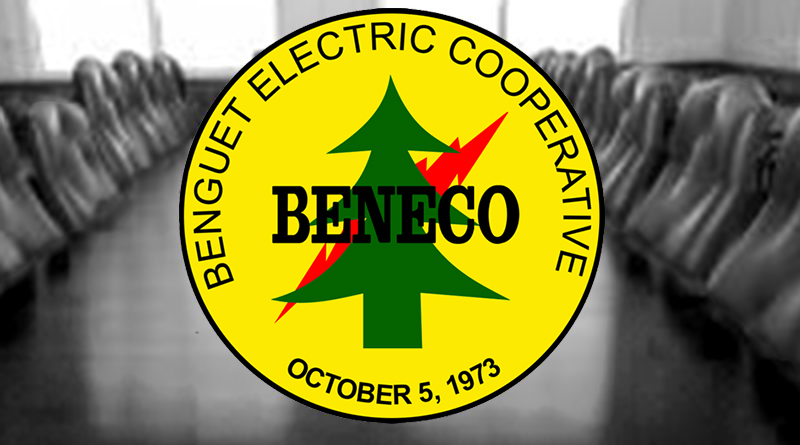Republic Act (RA) 8371 or the Indigenous Peoples Rights Act mandates developers to first secure the free and prior informed consent (FPIC) of indigenous peoples and indigenous cultural communities in the exploitation, development and utilization of the natural resources within their ancestral domain to make sure that host communities and the indigenous peoples (IPs) themselves will directly benefit from such development projects to be implemented within their domain. The passage of the law corrected the previous practice of government to just intrude into the ancestral domain of IPs and introduce development projects that often deprive the host communities and IPs of the supposed benefits from such projects. Because of the enactment of the law, IPs are now empowered to either approve or reject proposed development projects through a community-driven process. Such decision must be based on the full disclosure of information, especially potential impacts of the project, regarding the project and the process bereft of any shadow of coercion, intimidation, harassment, and inducement conducted through indigenous decision-making process and institutions through a time-frame respectful of these processes. That said, FPIC may include the option of withholding consent.
The Cordillera is one of the regions that benefits from the enactment of the IPRA because it is predominantly inhabited by indigenous peoples spread over the six provinces and two cities. The armed struggle of indigenous peoples with the support of concerned militiamen was instrumental in thwarting the implementation of several large-scale development projects that could have ravaged the good state of the environment in the region. During the martial law regime, the government granted a logging concession to Cellophil Resources Corporation to log over 200,000 hectares of virgin forests in the boundaries of Abra, Kalinga, and Apayao. It also proceeded with the construction of the World Bank-funded Chico river dam system stretching from Sabangan, Mountain Province up to Tabuk City, Kalinga that could have submerged the low-lying areas of Mountain Province and Kalinga. The indigenous peoples in these provinces were able to show that with their unity and solidarity to fight for their rights, they sent a clear message to the government and its development partners, including the World Bank, that no development can happen in their ancestral domains without them, without their voice, participation, consent, and their equitable share of benefits.
One of the serious downsides of the empowerment of the IPs is that there are some educated IPs who are in cahoots with developers in trying to get one over their fellow IPs to allow environmentally critical projects into their domain even if their fellow IPs will be disadvantaged with the conditions for such projects and the potential long-term impacts.
A real situation of educated IPs getting one over their fellow IPs is the sale of the consent of Kapangan and Kibungan IPs by a foreigner, a Korean businessman, who was able to enrich himself at their expense. This alleged enterprising Koran businessman, Larry Kim, formed the Cordillera Hydroelectric Development Corporation (COHECO) and was able to obtain the consent of Kapangan and Kibungan IPs for the put up of a 60-megawatt hydropower run-off river project in Kapangan. Further, his company was also able to obtain the appropriate government permits for the projects.
Ironically, Mr. Kim sold the company to a Filipino company allegedly to the tune of hundreds of millions of pesos without even paying the proper taxes and bringing back something to the IPs who gave their consent for his project. Unfortunately, Mr. Kim allegedly put up another company, the Cordillera Badeo Corporation, that plans to put up a 500-megawatt pump storage hydropower plant in nearby Badeo, Kibungan which is adjacent the hydro power plant of his original company. Kapangan and Kibungan IPs feel betrayed by what Mr. Kim has done, thus, they are looking for allies in the national government to work out the conduct of the needed inquiry to check on the legality of Kim’s transactions.
We support the initiative of Rep. Ronald M. Cosalan to conduct a congressional inquiry on Mr. Kim’s transactions because it is turning out that securing the consent of the IPs and the permits from concerned government agencies are now becoming a lucrative business for foreigners in the country. They simply enrich themselves at the expense of the indigenous peoples.
We challenge the province’s representative to push through with the congressional inquiry because the Filipino partners of this Korean businessman are belittling his capability to be able to do such thing. Let us not be fooled by the sugar-coated words of the dummies of this Korean businessman, IPs themselves, who are claiming that what had been exposed by this publication are all untrue. Be it said that these same people admitted in several gatherings that Mr. Kim sold the consent of the IPs. Kapangan and Kibungan IPs are just lucky that the company that bought the COHECO agreed to fulfill the agreements entered into by Mr. Kim with them.
We should remember that the consent of indigenous peoples is not for sale, thus, let us get our acts together in deploring such illegal acts that tend to enrich this Korean businessman and his local partners thereby depriving IPs their benefits from the development of the resources within their domain.














